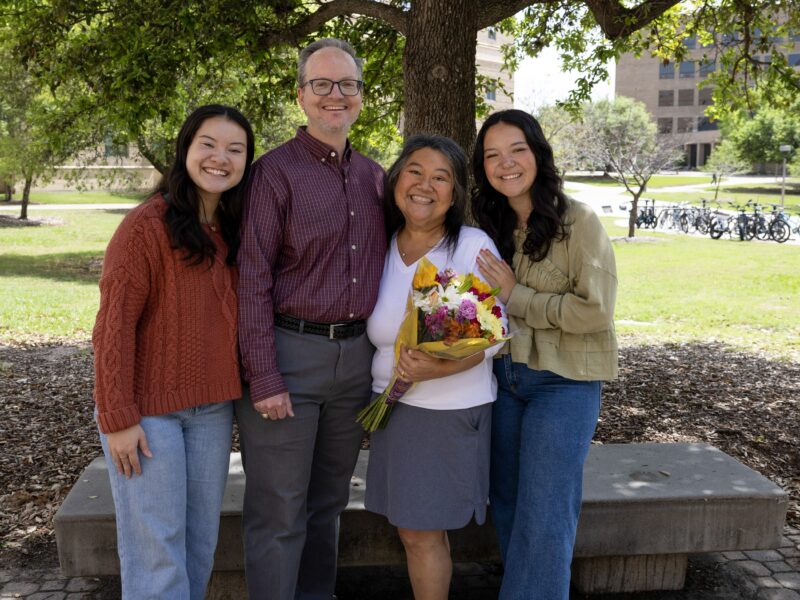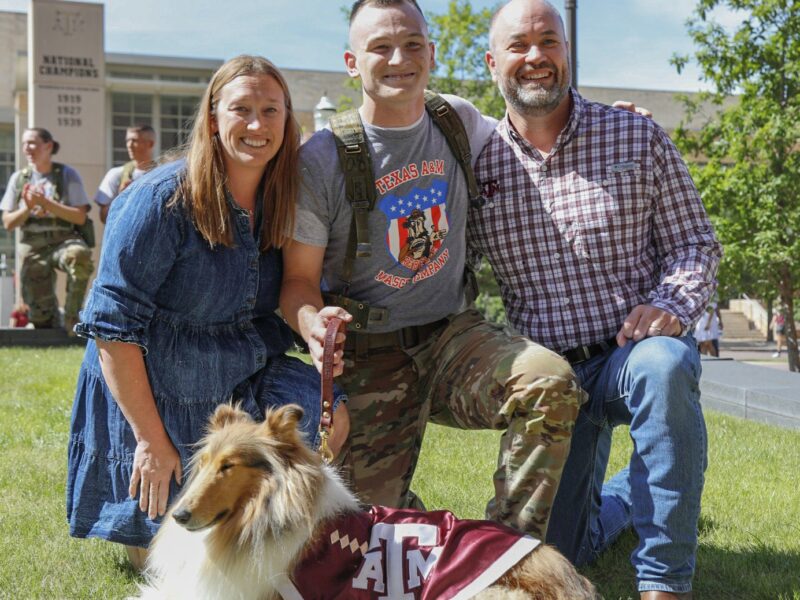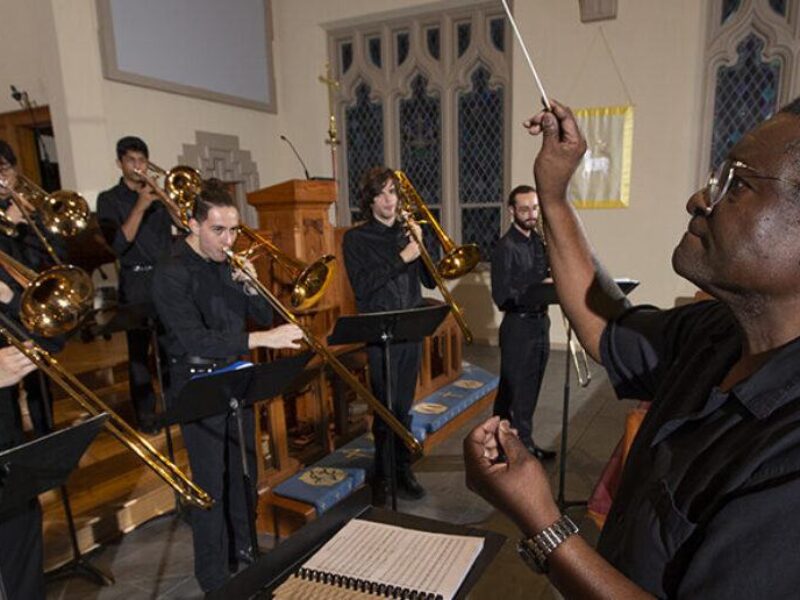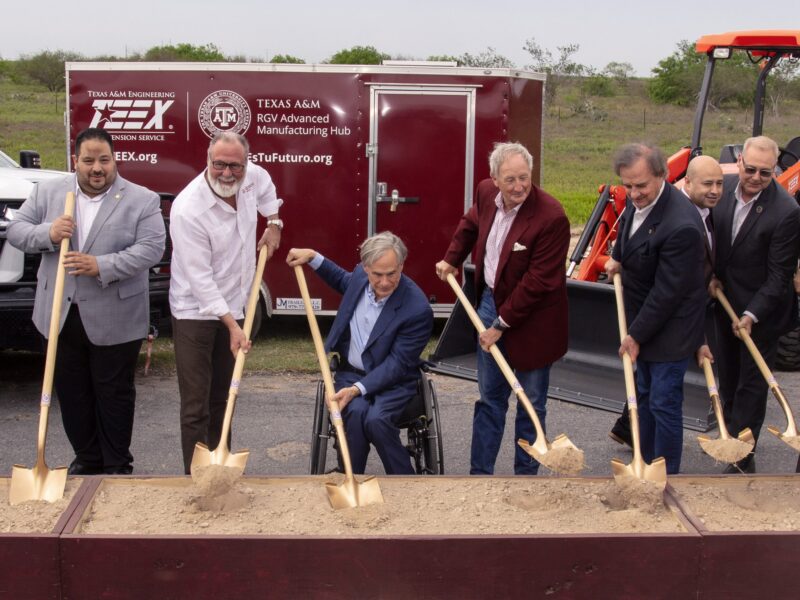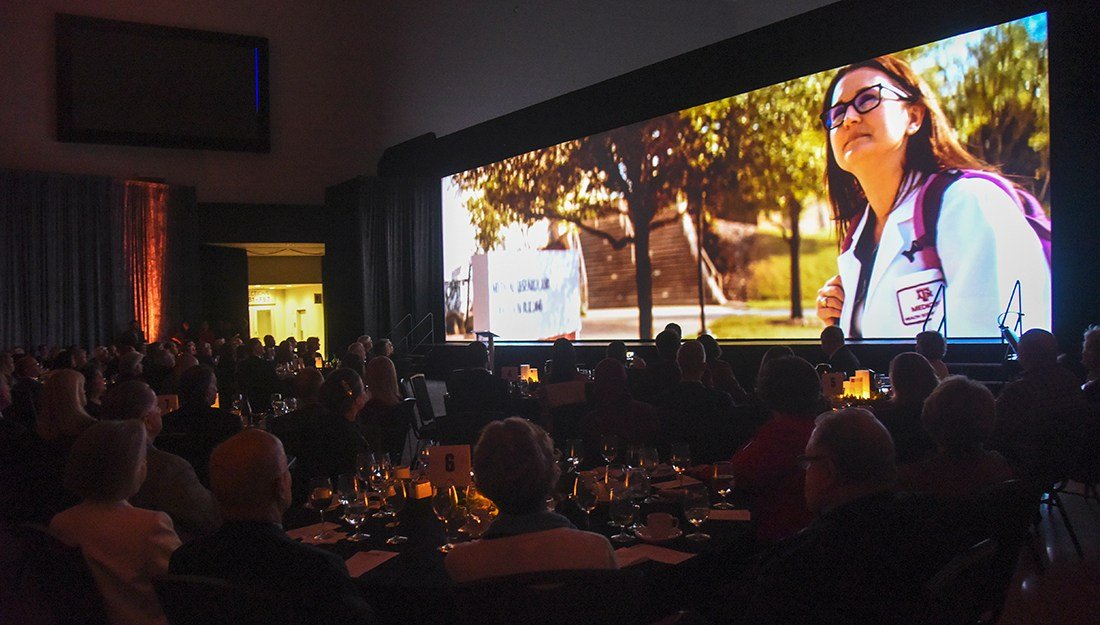
Engineering Medicine (EnMed), Texas A&M University’s innovative engineering medicine track in partnership with Houston Methodist Hospital, received its first scholarship endowment at a recent Texas A&M Foundation event.
The Spletter Memorial Scholarship, given by Rick and Kathy Spletter ’79, is an endowed scholarship with a preference for an EnMed student who served, or made a commitment to serve, in the United States military.
The Spletter family has a keen interest in combining their family’s engineering experiences— Kathy Spletter graduated from Texas A&M with a degree in chemical engineering, as did their older son, Christopher ‘14. Their daughter, Nicole ‘15, graduated with a biological and agricultural engineering degree, and their youngest son, Andrew ‘21, is a current engineering student.
“I was excited to hear about EnMed as an accredited program that would concretize the blending of engineering creativity and problem solving with a medical education,” Kathy Spletter said. “We know that quality health care is one of the most critical components of a quality life, and our current health care system is in need of creative solutions to reduce costs and improve care.”
The event included remarks from M. Katherine Banks, vice chancellor and dean of Texas A&M Engineering; Carrie L. Byington, MD, dean of the Texas A&M College of Medicine, senior vice president of the Texas A&M University Health Science Center and vice chancellor for health services at The Texas A&M University System; and Roderic Pettigrew, CEO of EnHealth and executive dean of EnMed.
EnMed Obtains LCME Approval, Can Begin Recruiting Inaugural Class Of Students
Byington spoke about the importance of innovation through technology and the impact it can have across patient populations, including some of the nations most underserved such as rural populations and military service members, veterans and their families.
“What if remote technology could monitor a patient’s chronic condition and share results with their physician—200 miles away?” Byington asked. “This is just one example of how Texas A&M can lead the way in transformational health technology development. Through the EnMed program, we will create innovative ways to better treat underserved populations.”
EnMed will train a new type of physician engineer, the ‘physicianeer,’ who will be a practicing physician and a trained engineer. It is expected to be the largest engineering-based medical degree program in the nation. It is also the only program that allows graduates to receive both a doctorate of medicine and master’s in engineering in four years.
The proposed curriculum received approval from the Liaison Committee on Medical Education (LCME) to begin recruiting the inaugural class of students, set to matriculate in July 2019. It is a case-based format with integration of both medicine and engineering content to develop and improve student’s clinical reasoning and problem-solving skills through real-world examples. Students admitted into EnMed will have a bachelor’s degree in engineering, computer science, or, in selected instances, a closely related field.
“We believe that this unique program, created and run by the outstanding Texas A&M faculty, will be a leading force in successful outcomes,” Spletter said. “We feel honored to be a small part of its birth.”
###
This story by Dominic Hernandez originally appeared in Vital Record.

